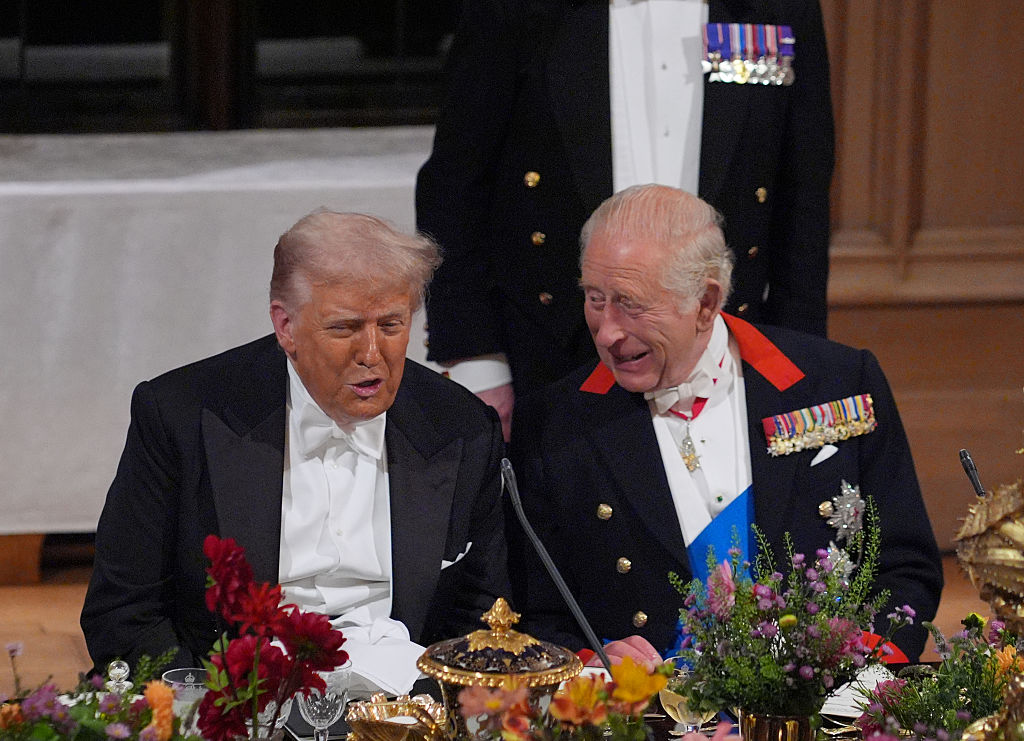A new era of chemical warfare is upon us—an era of chemical warfare as psychological warfare. The poisoning of Russian double-agent Sergei Skripal and his daughter in Salisbury, England, has dominated the headlines. But another development, from around the same time as the Salisbury attack first became known, is revealing for the attention it hasn’t received. Have you heard about the chemical weapons in Syria that don’t belong to Bashar Assad?
On March 22, the State Department officially declared one Joe Asperman a “Specially Designated Global Terrorist” and subject to sanctions. “French national Joe Asperman is a senior chemical weapons expert for Isis,” the State Department announced. “Asperman oversaw chemical operations production within Syria for Isis and the deployment of these chemical weapons at the battlefront.”
This was hardly the first acknowledgment that Isis has used chemical weapons in Iraq and Syria. But the contrast between the slight notice paid to the Asperman news and the great excitement that characterizes so much other coverage of chemical weapons points to the role that politics plays in shaping public perceptions. Or rather, in shaping the perceptions of those who seek to shape public perceptions—for what is really significant is the bandwagon effect that many pundits are happy to be led by. National Security Council spokesman Michael Anton, in a different context, has called the ability of interested parties to manipulate elite opinion “oligoguery,” in parallel with the better known concept of “demagoguery.” Chemical weapons have a mythical significance that conventional weapons simply lack, even when bombs and bullets kill tens or hundreds of thousands more people. Yet even chemical weapons only count when conditions are right.
Where Syria is concerned, the relevant conditions are a desire by humanitarian interventionists in the West and Assad’s enemies in the region to prioritize regime change in Damascus over fighting Isis in isolation. To trumpet the fact that Isis has used chemical weapons might detract from what is supposed to be uniquely evil about Assad. It would raise the question of whether doing to Assad what was done to Gaddafi in 2011 would actually put an end to atrocities like the use of chemical weapons. If the answer is that Assad, Isis, and any number of rebel groups and neighboring regimes have the means and the will to use these poisons, then suddenly Western intervention begins to seem pointless.
The news about non-regime chemical weapons in Syria is not suppressed. It’s just muted—deprioritized for reasons that are fundamentally political, though the people calling for intervention always present their motives as simply moral. Chemical weapons, and the splendidly vague term “Weapons of Mass Destruction,” are useful for connecting moral zeal to something that the public might actually fear. They are concepts that allow interventionists to play realists while remaining moralists.
But once political conflicts have been partly transmuted into matters of morals and public health, other sides can turn the rules to their own advantage. Are regimes like Kim Jong-un’s North Korea and Vladimir Putin’s Russia employing chemical weapons in assassinations to make a point about how brazenly they are prepared to defy Washington’s standards? In Kim’s case, he may just have a penchant for overkill—like using anti-aircraft guns for public executions. Russia denies that it’s behind the Skripal poisonings, although the fact that the Kremlin’s alternative theory—promoted by the chief of the Foreign Intelligence Service, Sergei Naryshkin—is that Britain and the U.S. were themselves the culprits suggests that Putin feels no need to make his denials plausible.
The mind games are all the distraction. The reality is that a great many chemical weapons, including sarin, are easy to make and well within the reach of dozens of regimes and non-state actors. There is no possibility of well-meaning Westerners disarming everyone or punishing every offender, and when the opinion elite continues to draw unenforceable “red lines” in their own heads, they indulge in a dangerous fantasy. The multi-sided civil war and regional conflict in Syria has to be looked at coldly, as does the West’s troubled relationship with Russia. The use of poisons and other horrible weapons is legitimate news, but it must be kept within the context of the sheer savagery of the struggle for power almost everywhere except among America and her closest allies.

























